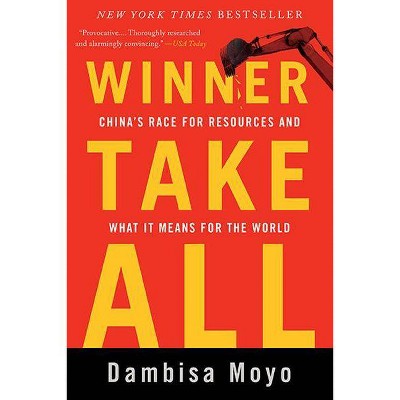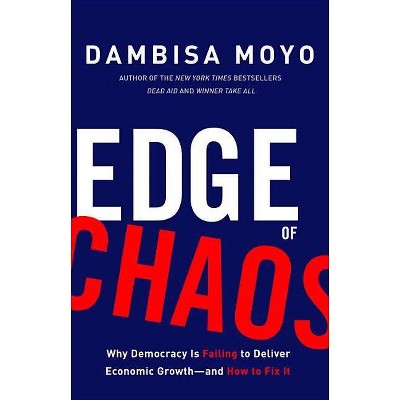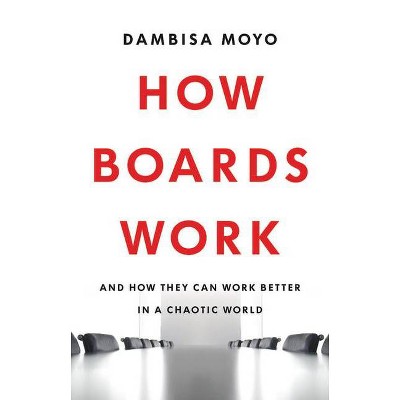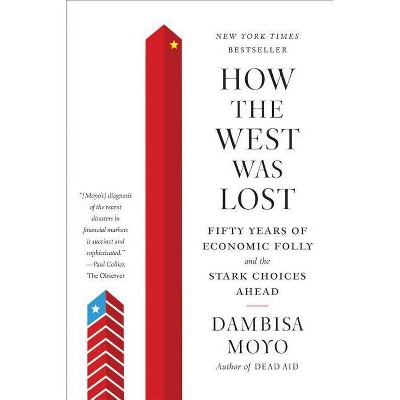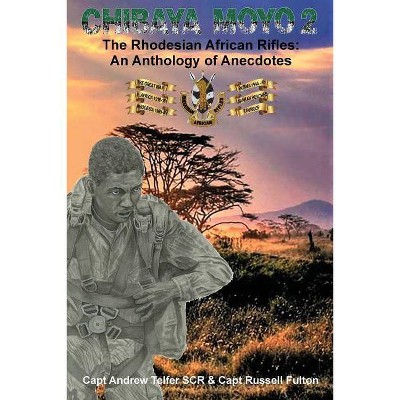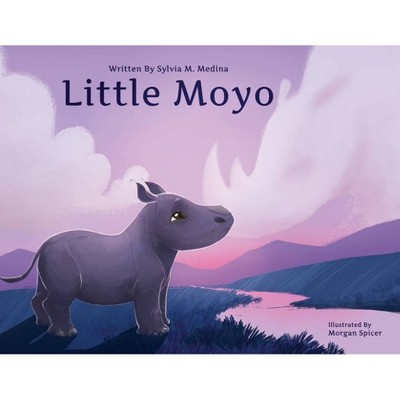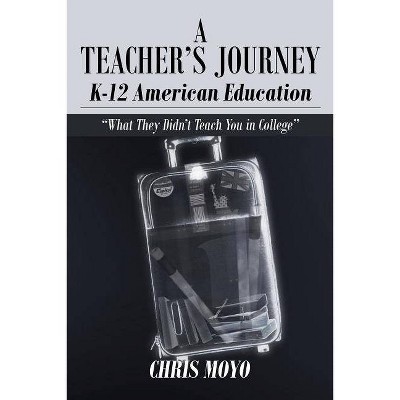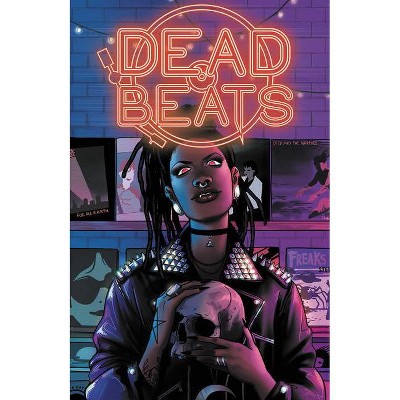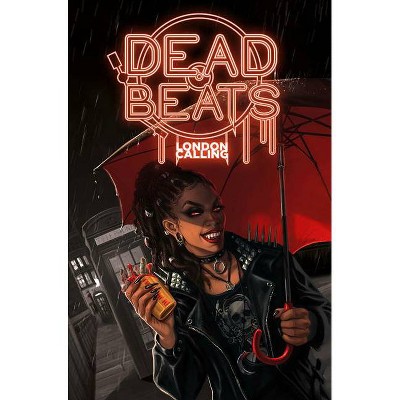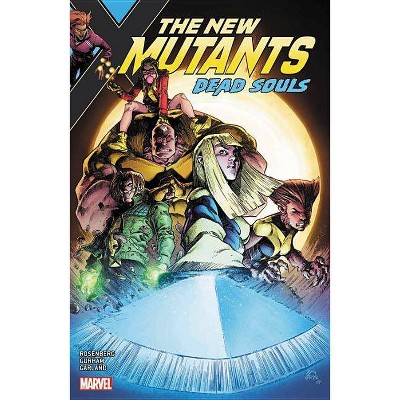Dead Aid - by Dambisa Moyo (Paperback)
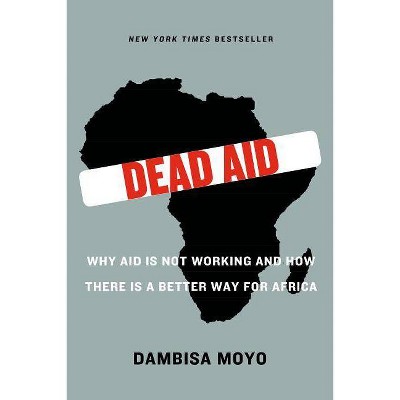
Similar Products
Products of same category from the store
AllProduct info
<p/><br></br><p><b> About the Book </b></p></br></br>"Dead Aid" describes the state of postwar development policy in Africa today and confronts one of the greatest myths of our time: that billions of dollars in aid sent from wealthy countries to developing African nations has helped to reduce poverty and increase growth.<p/><br></br><p><b> Book Synopsis </b></p></br></br><p>A national bestseller, <i>Dead Aid </i>unflinchingly confronts one of the greatest myths of our time: that billions of dollars in aid sent from wealthy countries to developing African nations has helped to reduce poverty and increase growth. In fact, poverty levels continue to escalate and growth rates have steadily declined--and millions continue to suffer. Debunking the current model of international aid promoted by both Hollywood celebrities and policy makers, Dambisa Moyo offers a bold new road map for financing development of the world's poorest countries. <p/>Much debated in the United States and the United Kingdom on publication, <i>Dead Aid </i>is an unsettling yet optimistic work, a powerful challenge to the assumptions and arguments that support a profoundly misguided development policy in Africa. And it is a clarion call to a new, more hopeful vision of how to address the desperate poverty that plagues millions.</p><p/><br></br><p><b> Review Quotes </b></p></br></br><br><p>"Moyo is right to raise her voice, and she should be heard if African nations and other poor countries are to move in the right direction." --Jagdish Bhagwati, <i>Foreign Affairs</i> <p/>"Moyo presents a refreshing view." --Lisa Miller, <i>Newsweek</i> <p/>"A tightly argued brief . . . Vivid." --Matthew Rees, <i>The Wall Street Journal</i> <p/>"An incendiary new book . . . Here is a refreshing voice . . . What makes <i>Dead Aid</i> so powerful is that it's a double-barrelled shotgun of a book. With the first barrel, Moyo demolishes all the most cherished myths about aid being a good thing. But with the second, crucially, she goes on to explain what the West could be doing instead." --Christopher Hart, <i>The Daily Mail</i> <p/>"Dambisa Moyo is to aid what Ayaan Hirsi Ali is to Islam. Here is an African woman, articulate, smart, glamorous, delivering a message of brazen political incorrectness: cut aid to Africa. Aid, she argues, has not merely failed to work; it has compounded Africa's problems. Moyo cannot be dismissed as a crank . . . She catalogues evidence, both statistical and anecdotal . . . The core of her argument is that there is a better alternative [and it deserves] to be taken seriously." --Paul Collier, <i>The Independent</i> <p/>"The wisdom contained here--if absorbed by African and global policymakers--will turn this chronically depressed continent into an inspiring miracle of dazzling economic growth." --STEVE FORBES, President and Chief Executive Officer of Forbes and Editor-in-Chief of Forbes magazine <p/>"Dambisa Moyo makes a compelling case for a new approach in Africa. Her message is that Africa's time is now. It is time for Africans to assume full control over their economic and political destiny. Africans should grasp the many means and opportunities available to them for improving the quality of life. Dambisa is hard--perhaps too hard--on the role of aid. But her central point is indisputable. The determination of Africans, and genuine partnership between Africa and the rest of the world, is the basis for growth and development." --KOFI ANNAN, former Secretary-General of the United Nations <p/>"<i>Dead Aid </i>is an important book . . . at the very least, [it] provides a first step towards changing how America, and the world, thinks about how to help Africa." --Heather Wilhelm, <i>Real Clear World</i> <p/>"<i>Dead Aid</i> is a wonderfully liberating book." --Doug Bandow, <i>The Washington Times</i> <p/>"[Moyo's] book offers an analytical, researched approach to restoring life and sufficiency in this developing continent. <i>Dead Aid</i> calls for a new way of thinking . . . After unraveling the myth created by many policymakers and celebrities that Africa simply needs more charity, Moyo poses a series of hopeful alternatives . . . Moyo speaks with both cultural and academic authority, unpacking the full nature of poverty and its regional impact. She unveils the sobering reality that $1 trillion in financial aid has not helped, but rather hindered African economies and their ability to grow into sustainable markets. This book offers a fresh insight into the plight of poverty and a vision for developmental change--the kind of change that could help millions." --Curt Devine, <i>Relevant</i> <p/>"Dambisa Moyo's book <i>Dead Aid</i> is a timely book which brings forth what we have been thinking about Western aid, but did not dare to speak out . . . Moyo has shown brilliantly that Western aid, governmental or non-governmental, couldn't help Africa in regard to transforming to a better form of social organization, by which innovation and technological development become possible . . . Moyo shows the strong correlation between increasing aid dependency, corruption and the nature of government structures in many African countries . . . In general Moyo's book is a very challenging book, and addresses our problems. It confronts those aid gurus, like Prof. Jeffrey Sachs, who manipulate the African leaders with their neo-liberal agendas. It is a very good starting point for further discussion, and can contribute to eliminating confusing ideas." --Fekadu Bekele, <i>Merkato Blog, Nazret.com</i> <p/>"A radical, counterintuitive solution to the continent's economic problems . . . [Moyo] is unequivocal, not to mention convincing." --Jason Zasky, <i>Failure Magazine</i> <p/>"The evidence assessing the impact of aid on economic growth (or the lack thereof) is comprehensive and convincing." --Apoorva Shah, Hoover Institution, Stanford University <p/>"Moyo's indictment of the past 50 years of aid-giving is compelling . . . [She] has written a well-informed book, and her passionate commitment to improving Africa's fortunes drips from every page." --Jonathan Wright, <i>Geographical</i></p><br><p/><br></br><p><b> About the Author </b></p></br></br><p><b>Dambisa Moyo</b> is the author of <i>How the West Was Lost</i>. Born and raised in Lusaka, Zambia, Moyo completed a Ph.D. in economics at Oxford University and holds a master's from Harvard University's John F. Kennedy School of Government. She worked for the World Bank as a consultant, and also worked at Goldman Sachs for eight years. In 2009, <i>Time</i> magazine named her one of the 100 most influential people in the world. Her writing frequently appears in publications including the <i>Financial Times</i>, <i>The Economist</i>, and <i>The Wall Street Journal</i>.</p>
Price History
Cheapest price in the interval: 12.59 on October 22, 2021
Most expensive price in the interval: 12.59 on November 8, 2021
Price Archive shows prices from various stores, lets you see history and find the cheapest. There is no actual sale on the website. For all support, inquiry and suggestion messages communication@pricearchive.us
